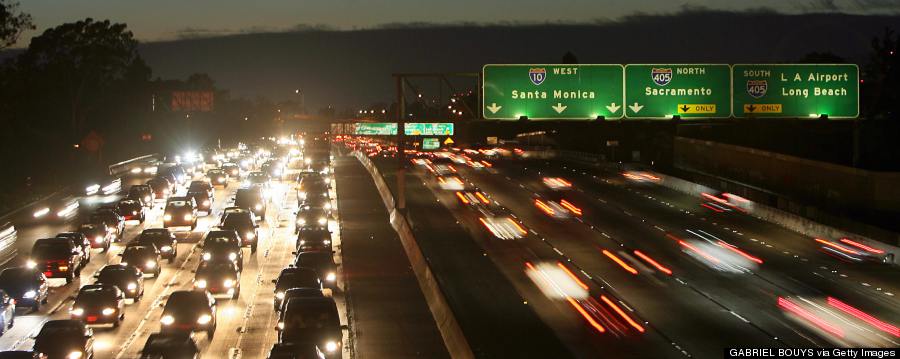If commuting time negatively affects life satisfaction, as some studies suggest, how do workers in Mexico City who face commutes of up to six hours feel? It's an important question, and one that many cities increasingly find themselves having to address.
As cities continue growing worldwide, commuters face a two-fold problem. Not only will the global urban population nearly double by 2050 to 6.2 billion, but during that time cities will expand over land faster than they gain people, creating only more ground for commuters to cover. The majority of the city growth will happen in developing countries, but even the already densely populated New York City is estimated to add 1 million residents by 2040.
And you thought the L train was bad now.
So what's to be done? Alain Bertaud, now a senior research scholar at the NYU Stern Urbanization Project and former principal urban planner at the World Bank, told The Huffington Post that sadly an ideal commuting system seldom fits seamlessly with urban expansion.
"Cities have to consume a certain amount of land and citizens decide that," he said. "It's the transport system that has to adapt to the structure of the city. Do not expect the city to adapt to your transport system."
But there is hope. While Bertaud's peers generally approach the problem as a question of managing car use or growing public transit, new technology may provide better solutions. Google's self-driving car and Toyota's "personal mobility" i-Road tricycles, for example, could reduce congestion on highways. Used in conjunction with public transit, commuters might have a better shot at faster and more reliable transportation that can cover the great expanses of our ever-growing cities.
Until that time, let's take a look at five cities with some of the worst commutes that have seen major urban expansion in recent years, as seen using visualizations created by the NYU Stern Urbanization Project.
Mexico City
Mexico City experienced rapid population growth between 1940 and 1970, and now has a population of some 20 million people when counting its sprawling suburbs.
The result has been rough on commuters. 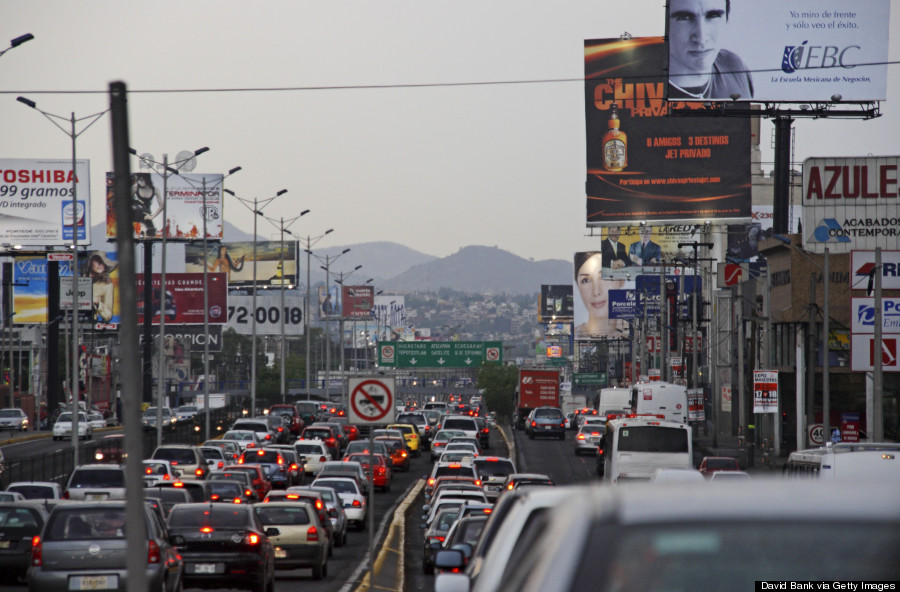
A new subway line is estimated to drop average commuting times from 150 to 78 minutes, which is still more than double the world average.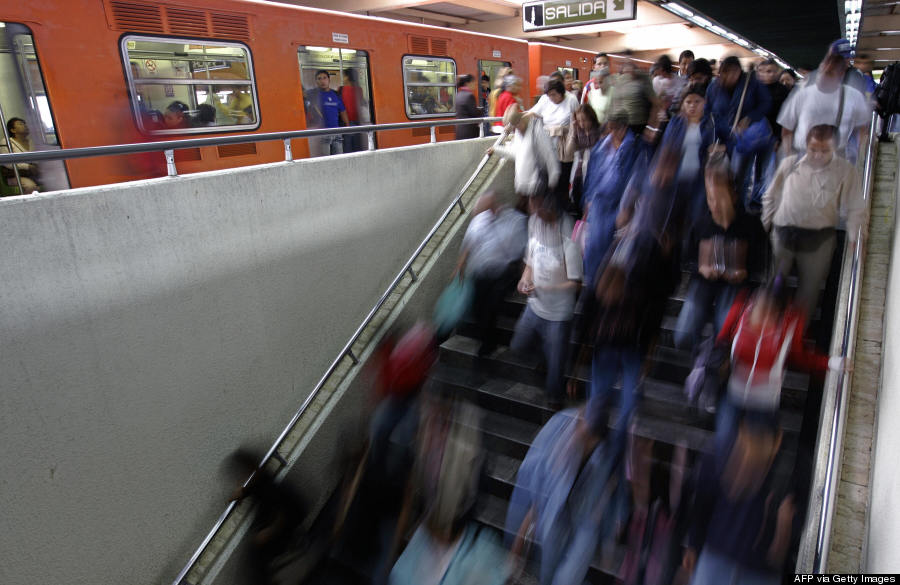
In a city with more than four million cars on the road, packed highways are commonplace.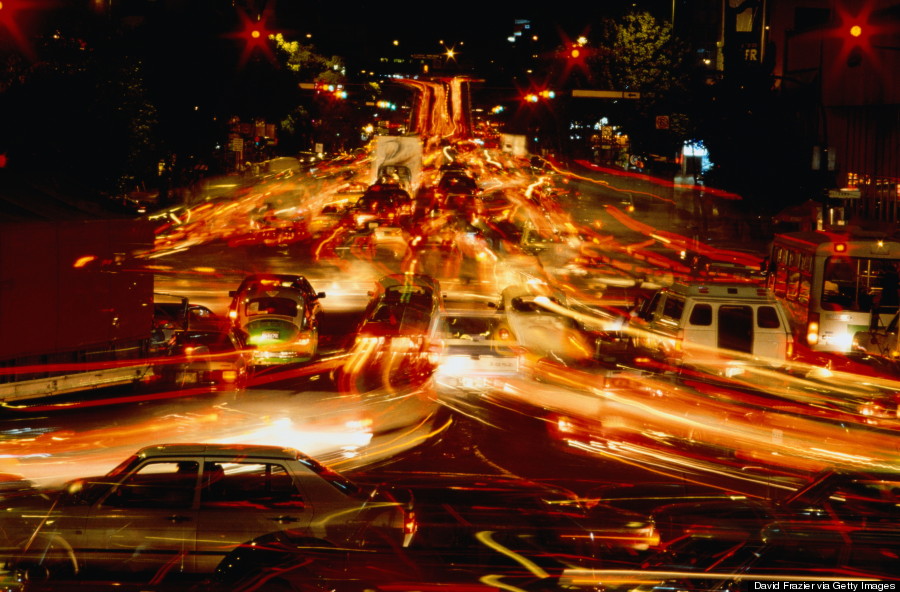
Beijing
As China's economy opened up in the late 1970s, cities like Beijing saw rapid expansion. Now home to 18 million people, residents have some of the longest travel times of any city in China at 52 minutes.
Both public transit and car commuters face challenges in Beijing. 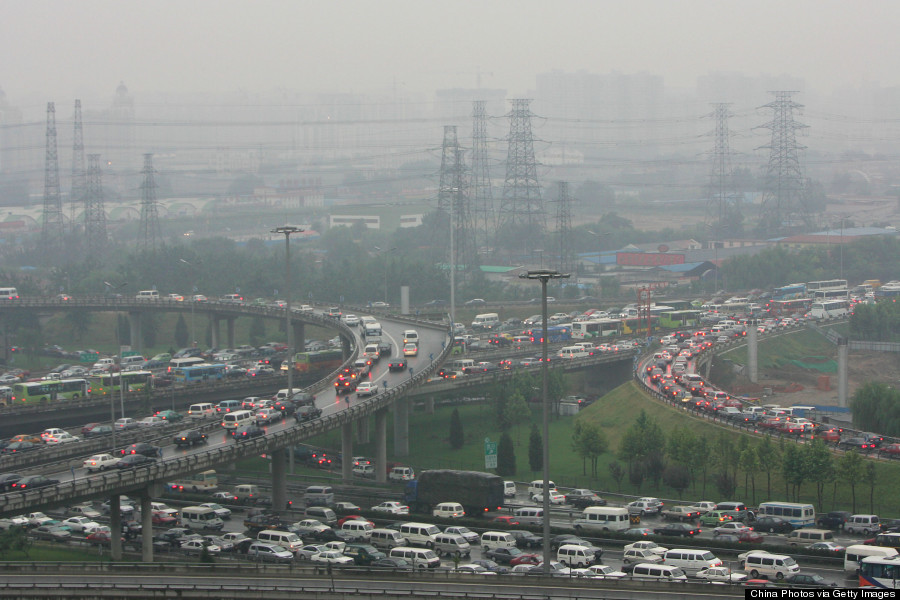
But recent alternatives, such as a subscription shuttle bus, are a step in the right direction.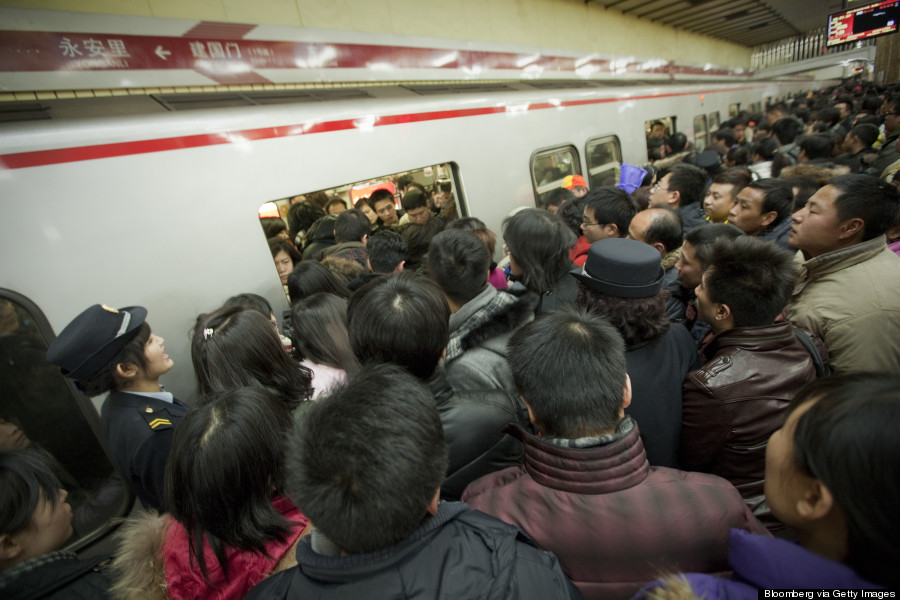 Commuters exit and enter a subway train during the evening rush hour in Beijing, China, in 2011.
Commuters exit and enter a subway train during the evening rush hour in Beijing, China, in 2011.
Nairobi
Nairobi's population has increased by more than ten times in the past fifty years. An influx of migrants has driven the rapid expansion of the city.
With a daily commute that was costing the Kenyan economy $600,000 per day in lost productivity, fuel consumption and pollution, this African metropolis has put significant investment toward an enhanced commuter rail. An overcrowded commuter train in 2004 when new regulations kept the country's notorious "matatu" minibuses off the roads.
An overcrowded commuter train in 2004 when new regulations kept the country's notorious "matatu" minibuses off the roads.
 Traffic works its way down a busy road in Nairobi, Kenya, in 2008.
Traffic works its way down a busy road in Nairobi, Kenya, in 2008.
Moscow
Already one of Europe's largest cities, migrants forced Moscow to become an even more sprawling metropolis in recent years.
A rise in automobile traffic increased commuting times in 2011 and 2012.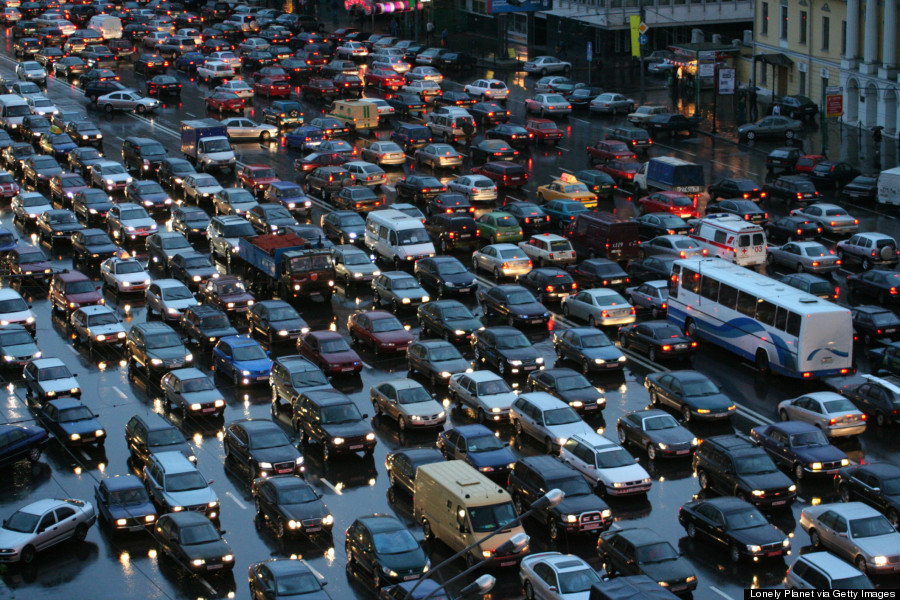
But that's not to say Muscovites don't use the metro. Each day around 9 million commuters use the subway, not to mention a few of the city's stray dogs.
Here's what happened in 2005 when some lines experienced power outages.

Los Angeles
Los Angeles is rare in that it's constrained by both mountains and the sea, notes Bertaud. For that reason, it has a relatively dense population for a city that relies on car transportation.
Los Angeles is frequently voted among U.S. cities with the worst commutes. Los Angeles commuters wasted 64 hours on average sitting in traffic last year.
But if the city could maximize carpooling, or use smaller personal transportation, "that would solve most of the problem by cutting down on space on the highway,” Bertaud said.